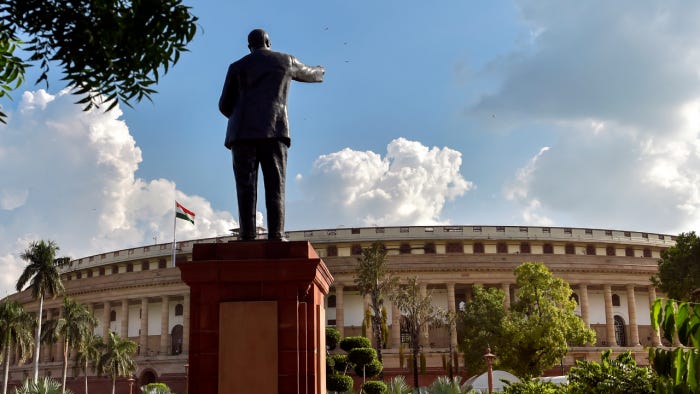Can SC/STs be Subcategorized to give priority to more Backward Groups? Supreme Court Reserves Judgment
Can SC/STs Be Subcategorized To Give Priority Reservations For More Backward Groups? Supreme Court Judgment Awaited.
Historical and Legislative Context in Punjab
A 7-Judge Bench of the Supreme Court on 7th February, 2024 reserved its judgment on the permissibility of sub-classification within SC/ST reservations, marking pivotal moment in the ongoing debate over the equitable distribution of reservation benefits. This judicial scrutiny is particularly significant given the historical context and legislative actions in Punjab, a state with the highest proportion of Dalits in its population, which has been at the forefront of advocating for sub-categorisation within the SC community to ensure a more balanced and equitable allocation of reservation benefits.
Origins of Sub-categorisation Debate in Punjab
The origins of this debate in Punjab can be traced back to 1975, under the Congress government led by then Chief Minister Giani Zail Singh, who introduced a circular that reserved 50% of the SC quota for Valmikis and Mazhabi Sikhs, recognizing the intra-community disparities in accessing reservation benefits. This move was predicated on the observation that certain sub-groups within the SC community were disproportionately benefiting from reservations, thereby necessitating a policy intervention to rectify this imbalance, in favour of those that the bottom of the socio-economic pyramid.
Legal Challenges and Political Journey
The legal and political journey of sub-categorisation in Punjab has been fraught with challenges. The Punjab and Haryana High Court's 2006 decision to strike down the circular, citing the Supreme Court's judgment in E.V. Chinnaiah v State of Andhra Pradesh (2004) as precedent, underscored the complexities involved in navigating the constitutional mandates regarding equality and the practicalities of reservation policies. The subsequent legislative efforts, protests, and judicial interventions highlight the deep-seated tensions and aspirations within the SC community and the broader societal implications of reservation policies.
Punjab's Argument and the Broader Challenge
Punjab's argument before the Supreme Court, as articulated by the State's Advocate General, underscores a nuanced understanding of reservation as a tool for social justice, aimed not just at addressing historical injustices but also at recognizing the layered nature of disadvantage within reserved categories. This argument reflects a broader challenge faced by the Indian state: balancing the constitutional commitment to equality with the pragmatic need to address varying degrees of social and economic backwardness within historically marginalized communities.
Implications of the Supreme Court's Judgment
The Supreme Court's impending judgment on this matter is awaited with bated breath, not only for its immediate implications for Punjab but also for its potential to reshape the contours of India's reservation policy. Regardless of the outcome, the debate over sub-categorisation raises fundamental questions about the nature of social justice and the role of the state in addressing intra-community disparities in a fair, just, equitable, transparent, and rational manner, which will be exceedingly challenging. Given that any sub-categorisation will be subject to judicial review, this adds a layer of complexity. Furthermore, the dynamic scenario necessitates the continuous reassessment of this gradation of Scheduled Castes (SCs) based on decreasing order of backwardness and deprivation, which will also be an important point for consideration.
Complexities and Implementation Challenges
The complexities involved in implementing such a policy, should it be deemed permissible, highlight the need for a rigorous, scientific approach to assess relative backwardness within reserved categories. Moreover, the broader implications for the "general category" and the potential for increased societal division underscore the delicate balance that must be struck in pursuing equity and social cohesion.
Conclusion: Broader Implications for Indian Society
In summary, while the efficacy and fairness of reservation as a tool for reducing inequality remain subjects of intense debate, the Supreme Court's judgment on sub-categorisation will undoubtedly have far-reaching implications for the politics of reservation, the dynamics of social justice, and the fabric of Indian society.






